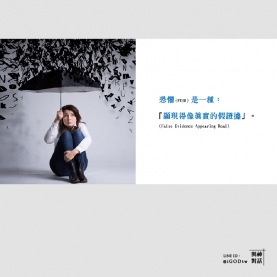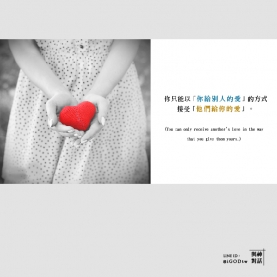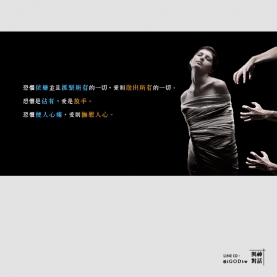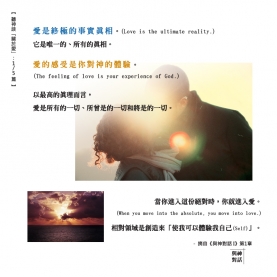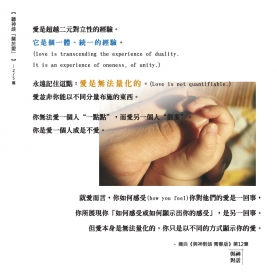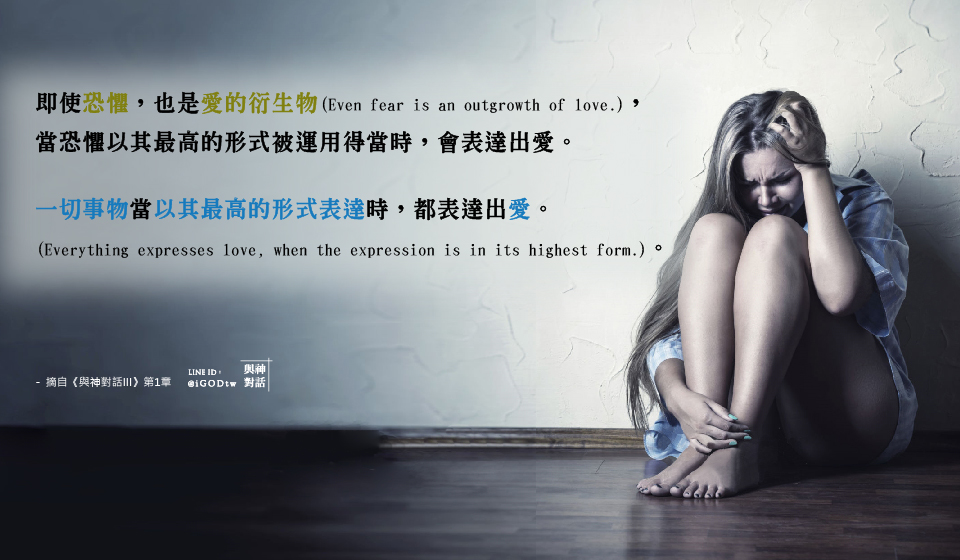
【「恐懼」是否可能是「愛」的衍生物?】
事實上,愛是所有的一切(In truth, love is all there is.)。即使恐懼,也是愛的衍生物,而當恐懼被運用得當時,會表達出愛。(Even fear is an outgrowth of love, and when used effectively, expresses love.)
尼爾:恐懼會表達出愛?
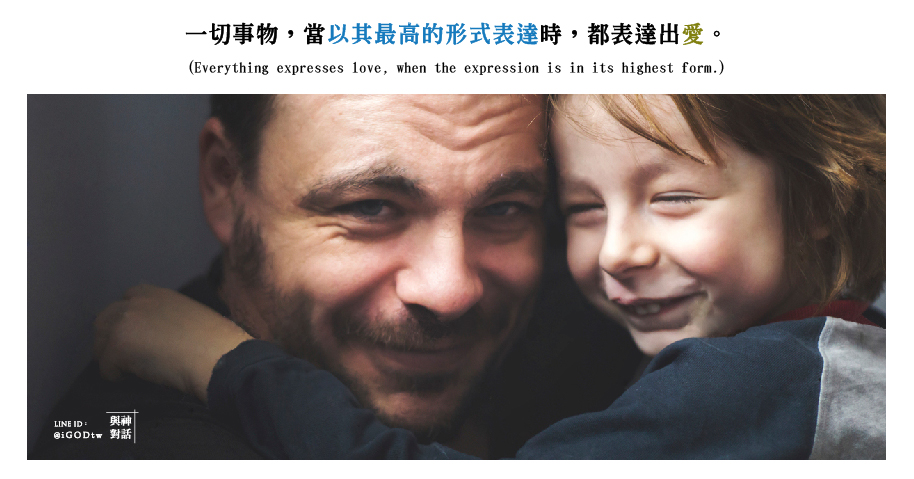
以其最高的形式,沒錯。一切事物,當以其最高的形式表達時,都表達出愛(Everything expresses love, when the expression is in its highest form.)。
那位衝向車輛奔馳的馬路上救出孩子的父母,表達的是恐懼或是愛?
尼爾:嗯,我認為,兩種都有。因為害怕孩子的生死,而愛——足以使他們冒著自己性命的危險去搶救孩子。
正是如此。所以從這裡可以看出,恐懼以其最高的形式變成為愛……是愛……以恐懼被表達。
同樣的,隨著自然情緒的尺度而上,悲傷(grief)、憤怒(anger)與羨妒(envy),也都是恐懼的某種形式,而反過來,也是愛的某種形式。(神在前一段提到:悲傷、憤怒、羨妒、恐懼與愛是人類的「五種自然情緒」 the five natural emotions。)
其一導致其二,你明白嗎?
當這「五種自然情緒」的任何一種被扭曲時,問題就會產生。然後它會變得怪異,而完全無法被認出是愛的產物,更不用說是神的產物,而神是絕對的愛(Absolute Love)。
摘自《與神對話III》第1章

In truth, love is all there is. Even fear is an outgrowth of love, and when used effectively, expresses love.
Neale: Fear expresses love?
In its highest form, yes. Everything expresses love, when the expression is in its highest form.
Does the parent who saves the child from being killed in traffic express fear, or love?
Neale: Well, both, I suppose. Fear for the child's life, and love—enough to risk one's own life to save the child.
Precisely. And so here we see that fear in its highest form becomes love ... is love ... expressed as fear.
Similarly, moving up the scale of natural emotions, grief, anger, and envy are all some form of fear, which, in turn, is some form of love.
One things leads to another. Do you see?
The problem comes in when any of the five natural emotions become distorted. Then they become grotesque, and not recognizable at all as outgrowths of love, much less as God, which is what Absolute Love is.



